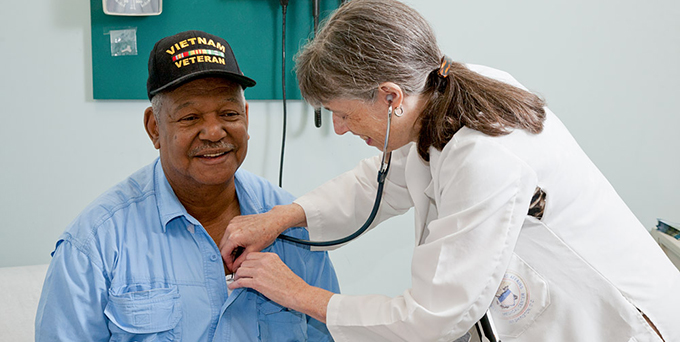
We hear the mantra “support our troops” all the time, and for good reason: most people are very grateful for the men and women who dedicate years of their lives to protecting our country. Unfortunately, we don’t always take the best care of our soldiers once they return home.
The United States Department of Veteran’s Affairs (the VA), doesn’t have the best reputation when it comes to providing high-quality healthcare for men and women returning from service. The good news? Since 2018, congressional leaders have been working on the VA Mission Act. Soon, new legislation will emerge to address the timeworn issue of veteran access to healthcare services. But will it be enough?
Here’s how America’s veteran services stack up—and what we could be doing better.
Is America Taking Care of Its Own?
According to the Veterans Action Network, American veterans do get some key benefits that many other countries don’t offer. These include life insurance for disabled veterans, enhanced survivor benefits, and compensation for a wide range of disabilities. From this perspective, the U.S. takes care of its own more than most other countries. However, the sheer size of the system has also caused major problems.
The VA serves a huge number of veterans—23.8 million in 2010—as compared to 220,000 in Canada, 415,000 in Australia, and 900,000 in the U.K. While it’s great that so many veterans have access to healthcare, these large numbers put a strain on the system. That, combined with bureaucratic issues, have made the VA inefficient and has caused problems in getting benefits to those who need and deserve them.
There’s a Lot of Room for Improvement
Aside from the inherent inefficiencies in the VA healthcare network, it is a common misconception that every American service member receives health insurance. In the United States, approximately half a million of our nation’s former enlisted personnel do not have health care coverage.
For those who do have coverage, access to healthcare can be extremely limited. Many veterans have to travel long distances or wait months for appointments, burdens that prevent service members to get the care they need.
A Battle Is Brewing in the Nation’s Capital Over VA Health Insurance
For years, politicians have been discussing ways to improve the VA healthcare system. The VA Mission Act is a sign of at least some progress in improving access to care for veterans, but the legislation has also prompted a battle that’s brewing in the nation’s capital.
One of the core goals of the Act is to allow veterans to have more flexibility in their healthcare options, allowing them to see private healthcare providers instead of VA doctors in some cases. While this is already an option when a vet lives too far from a VA facility or must wait more than 30 days to receive care, the Act would expand these exceptions and allow more veterans to seek outside care.
Critics of the legislation feel that this would move veteran care too far into the private sector and direct much-needed federal resources into private coffers. Those who support it feel that the legislation will help expand access for veterans and improve healthcare for former military personnel across the country.
A Partial Solution
Until the battle over legislation plays out in Washington, veterans still need to be able to access high-quality healthcare services. For currently enlisted personnel or civilian-employed veterans, a Health Savings Account (HSA) may be a good option. Veterans with a high-deductible healthcare plan can now open a tax-friendly HSA with fewer solutions.
Obviously, HSAs aren’t the full solution to the challenges facing the VA healthcare system. However, they might be a partial solution and allow some service members to get the care they need.
Veterans Deserve Healthcare—Tips for Getting Those Benefits
Veterans deserve healthcare, but getting those benefits can still be challenging. Until laws change, some service members may run into excessive obstacles just to see a doctor. Many veterans are eligible for coverage but simply forget to update their information, are unfamiliar with the VA’s strict rules, or struggle with access due to proximity or long wait times.
If you’re a veteran trying to navigate the VA system, be sure to update your information as necessary and do your research before you ask questions. It’s important to ask questions as the system can be complicated, but it’s a good idea to have all your documentation and to know as much as you can about your situation so you don’t waste time.
America cares about providing excellent benefits for veterans. But until the strain on the VA is reduced, vets might have to have a lot of patience when trying to get healthcare
